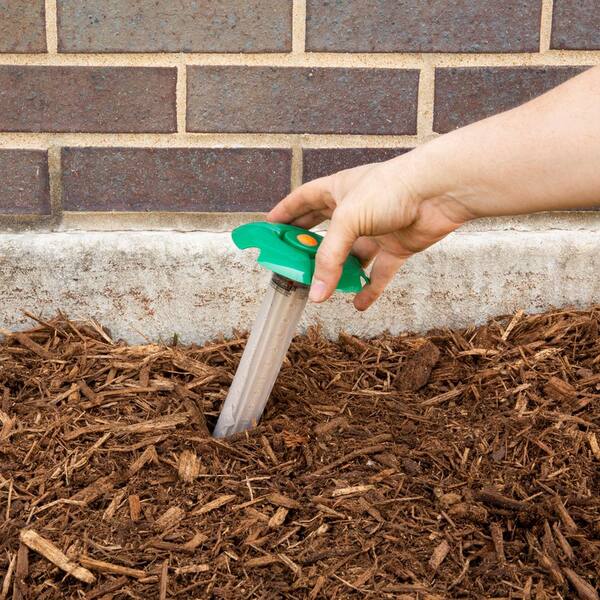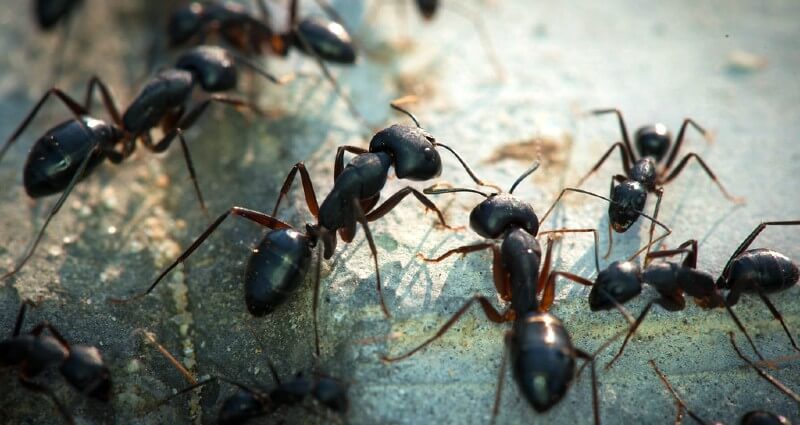Total Ant Control: Strategies and Services to Beat Ant Problems
Total Ant Control: Strategies and Services to Beat Ant Problems
Blog Article
Ecological Impact of Bug Control: Balancing Performance With Sustainability
The ecological influence of bug control is an important concern that needs a delicate balance between achieving effectiveness in handling pests and making certain sustainability of our ecological communities. From the usage of harmful chemicals that seep right into our dirt and water to the unintended effects on non-target varieties, the effects of traditional parasite control practices are significant.
Dangerous Chemicals in Pest Control
The utilization of harmful chemicals in pest control poses considerable environmental and health and wellness threats that call for cautious consideration and mitigation techniques. Herbicides, insecticides, and pesticides are typically utilized to get rid of bugs, however their widespread application can bring about unplanned repercussions. These chemicals can infect soil, water sources, and the air, impacting not just the targeted bugs however additionally helpful insects, wild animals, and human beings.

To address these dangers, incorporated bug management (IPM) methods are being advertised as an extra sustainable choice. IPM includes a combination of approaches such as organic control, habitat adjustment, and the targeted usage of pesticides as a last hope (ant control hickory nc). By adopting an all natural method to pest control, we can lessen the environmental and health influences related to harmful chemicals while efficiently managing pest populaces
Effect on Non-Target Types
Considering the unintentional consequences of bug control techniques, the effect on non-target varieties is an essential facet that requires extensive analysis. While insect control actions aim to target certain parasites, other organisms in the ecological community might be unintentionally influenced. Non-target types, consisting of valuable pests, birds, animals, and also plants, can endure indirect or straight harm from chemical applications or organic control approaches.
Chemicals can have lethal or sub-lethal effects on non-target species. Pesticides developed to fight a certain bug parasite might harm pollinators like or all-natural killers such as ladybugs. Furthermore, chemical residues can collect in the atmosphere, affecting non-target microorganisms gradually. Similarly, biological control agents, otherwise species-specific, can position risks to unplanned targets, disrupting the eco-friendly balance.
To reduce the influence on non-target varieties, incorporated pest monitoring (IPM) strategies that highlight an alternative approach to pest control are recommended. These techniques prioritize the use of ecologically friendly techniques, decreasing injury to valuable microorganisms while effectively managing pest populaces. Performing comprehensive risk assessments and keeping an eye on the outcomes of pest control efforts are necessary action in guarding non-target species and promoting general community health and wellness.
Soil and Water Contamination
Unplanned ecological repercussions of parasite control methods expand beyond affecting non-target types, with considerable ramifications for soil and water contamination - termite control. Chemicals, herbicides, and chemical plant foods used in parasite control can seep into the dirt and infect groundwater, positioning a hazard to both terrestrial and marine communities.
Water contamination is an additional critical problem connected with insect control techniques. Runoff from agricultural areas treated with pesticides can lug these chemicals into nearby water bodies, affecting water microorganisms and water quality. Pollutants in water resources can have significant repercussions, influencing not only aquatic life yet likewise human wellness via the usage of polluted water or water organisms. To mitigate dirt and water contamination from parasite control tasks, incorporated bug management methods that prioritize sustainability and reduce chemical inputs are crucial.
Air Pollution From Pesticide Usage
Exposure to airborne chemicals during agricultural applications postures a considerable worry for air contamination control procedures. In addition, chemical drift, where pesticides are brought by the wind to unintentional locations, can lead to the contamination of close-by ecological communities and water bodies.

Strategies for Lasting Bug Control
In the world of agricultural techniques, executing lasting insect control methods is vital for maintaining environmental balance and securing crop yields. Lasting pest control stresses using ecologically pleasant techniques to manage insect populaces efficiently while lessening harm to non-target microorganisms and communities. Integrated Parasite Administration (IPM) is a commonly taken on strategy that incorporates biological, cultural, physical, and chemical control techniques to achieve long-term insect management options.
Plant turning and diversity are likewise efficient strategies to disrupt pest life cycles and produce much less favorable conditions for insects to flourish. Eventually, by integrating these lasting insect control techniques, farmers can accomplish a balance in between pest monitoring effectiveness and ecological stewardship.
Verdict
Finally, the environmental impact of insect control techniques have to be meticulously thought about to balance effectiveness with sustainability. Damaging chemicals utilized in pest control can lead to soil and water contamination, air contamination, and harm non-target species - ant control. It is crucial to apply lasting bug control methods to reduce these adverse impacts on the setting and advertise a healthier ecological community for future generations
By taking on an all natural strategy to pest control, we can reduce the environmental and health and wellness effects linked with hazardous chemicals while successfully handling pest populations.

To minimize the air pollution triggered by pesticide use, it is essential to take on incorporated insect monitoring strategies that prioritize the usage of non-chemical parasite control techniques, such as plant turning, natural killers, and resistant plant varieties. Sustainable parasite control highlights the use of eco friendly approaches to handle parasite populaces effectively while reducing injury to non-target click organisms and ecosystems. Integrated Parasite Management (IPM) is an extensively adopted technique that combines organic, social, physical, and chemical control methods to attain long-term bug administration solutions.
Report this page